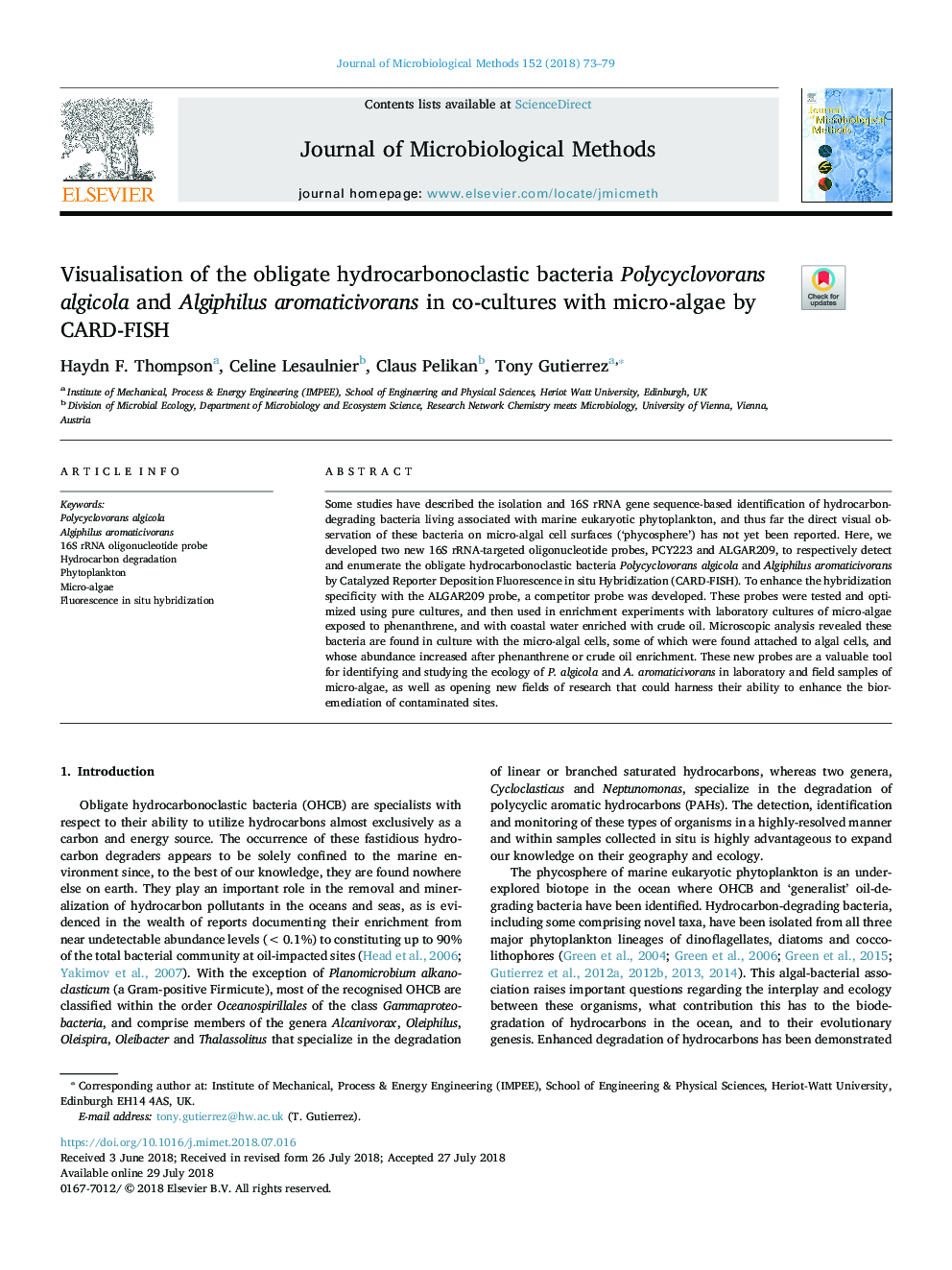| Article ID | Journal | Published Year | Pages | File Type |
|---|---|---|---|---|
| 8420259 | Journal of Microbiological Methods | 2018 | 7 Pages |
Abstract
Some studies have described the isolation and 16S rRNA gene sequence-based identification of hydrocarbon-degrading bacteria living associated with marine eukaryotic phytoplankton, and thus far the direct visual observation of these bacteria on micro-algal cell surfaces ('phycosphere') has not yet been reported. Here, we developed two new 16S rRNA-targeted oligonucleotide probes, PCY223 and ALGAR209, to respectively detect and enumerate the obligate hydrocarbonoclastic bacteria Polycyclovorans algicola and Algiphilus aromaticivorans by Catalyzed Reporter Deposition Fluorescence in situ Hybridization (CARD-FISH). To enhance the hybridization specificity with the ALGAR209 probe, a competitor probe was developed. These probes were tested and optimized using pure cultures, and then used in enrichment experiments with laboratory cultures of micro-algae exposed to phenanthrene, and with coastal water enriched with crude oil. Microscopic analysis revealed these bacteria are found in culture with the micro-algal cells, some of which were found attached to algal cells, and whose abundance increased after phenanthrene or crude oil enrichment. These new probes are a valuable tool for identifying and studying the ecology of P. algicola and A. aromaticivorans in laboratory and field samples of micro-algae, as well as opening new fields of research that could harness their ability to enhance the bioremediation of contaminated sites.
Related Topics
Life Sciences
Biochemistry, Genetics and Molecular Biology
Biotechnology
Authors
Haydn F. Thompson, Celine Lesaulnier, Claus Pelikan, Tony Gutierrez,
